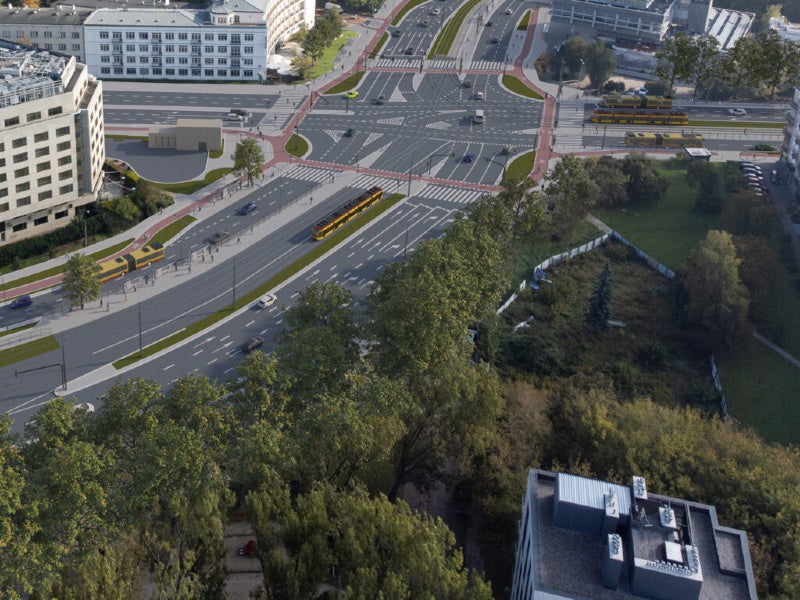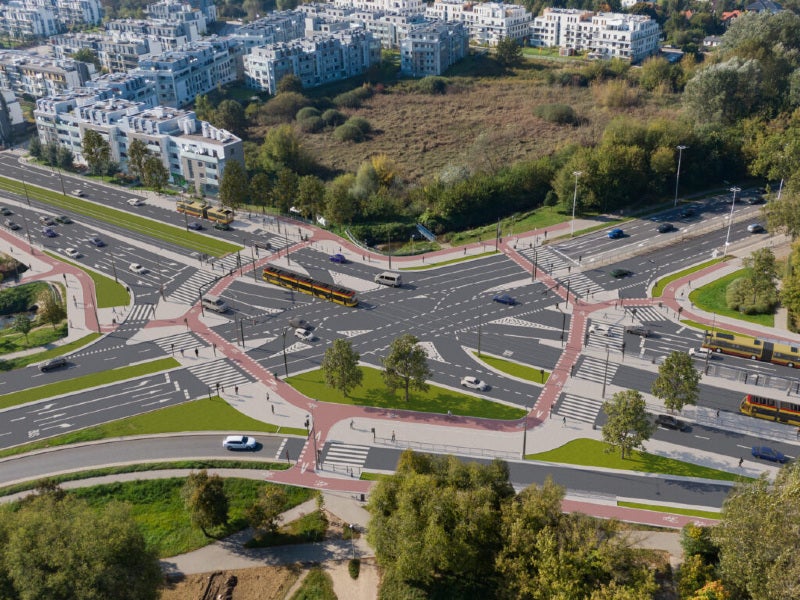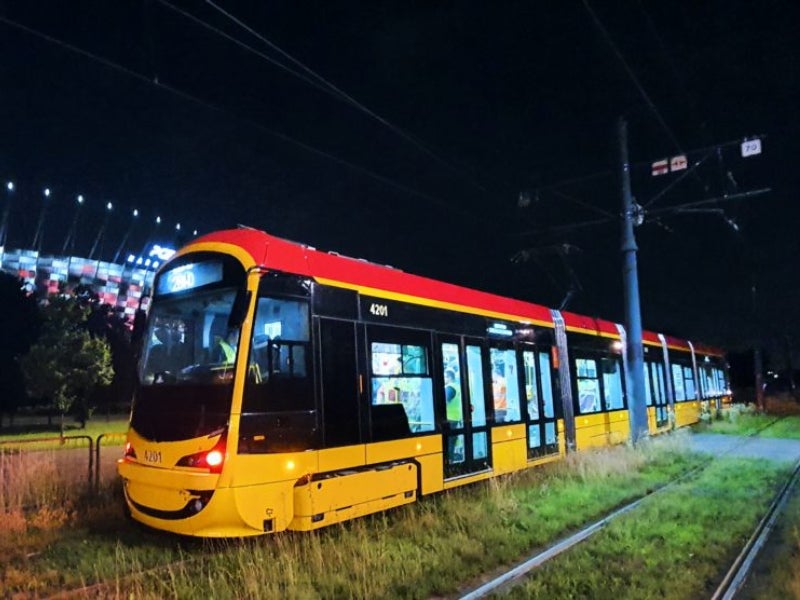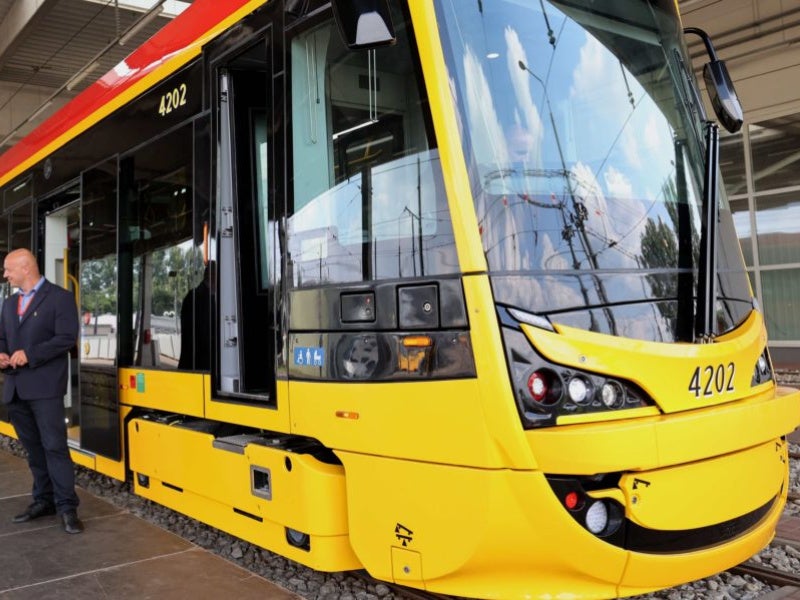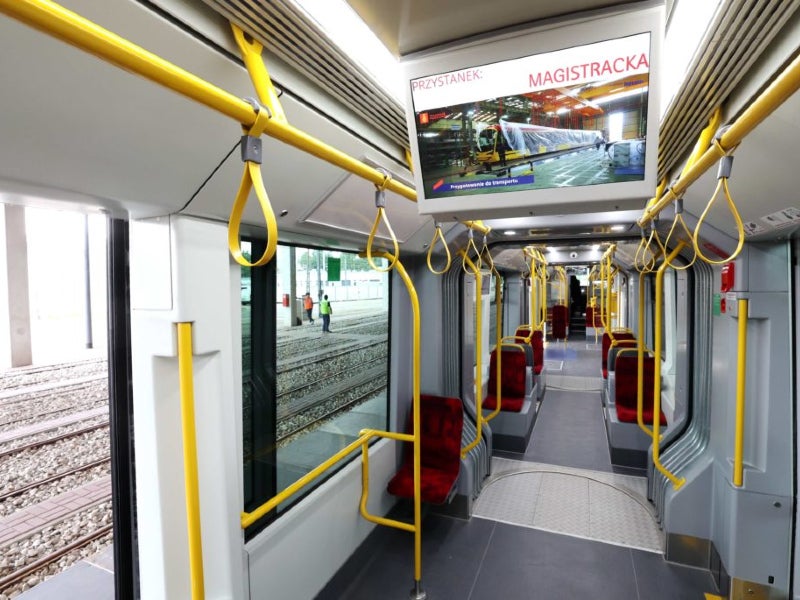Tramwaje Warszawskie, a tram operator owned by the city of Warsaw, is developing a new tram route between the Wilanów and Śródmieście districts in Poland.
The Wilanów-Śródmieście tramline is expected to help commuters to reach Wilanów from Śródmieście in less than 30 minutes.
The project is considered to be one of the largest tramway investments currently underway in the country. It will also support the plans to develop a low-emission public transport system in Warsaw.
Construction of the project is expected to begin in August 2022 and is scheduled to be completed by the end of January 2024.
Wilanow-Srodmiescie tramline route details
The new Wilanów-Śródmieście tram route will have a total length of approximately 8km. It will include four junctions and 31 stops.
The stops on the tramline will be designed to meet the requirements of persons with disabilities.
There are plans to establish two branches within the route. The first branch will run along Gagarina Street up to Czerniakowska Street.
The tramline will start at the junction of Puławska and Goworka streets. An existing section of the tram route between Rakowiecka Street to Plac Unii Lubelskiej will also be reconstructed as part of the project.
The route will pass through Goworka and Spacerowa streets, which will have a difference in elevation of nearly 22m in the direction of Lower Mokotów.
It will continue along Belwederska and Sobieskiego streets, in the direction of Miasteczko Wilanów. A terminus for two-way trams will be built at the intersection between Rzeczypospolitej and Branickiego avenues. It will end at the terminal for two-way trams.
The route will be equipped with a green wave system, which will eliminate the need for trams to wait for green signal at intersections.
Construction work
Preparatory works are expected to begin at Gagarina Street in May 2022. Main works will include the construction of a 1.2km-long, 2.8m-diameter underground sewage collector and reconstruction of the heating network, followed by the construction of tram tracks.
Rolling stock for Wilanow-Srodmiescie tramway
Hyundai Rotem was awarded a tender by Tramwaje Warszawskie for the supply of up to 213 trams in February 2019. The new rolling stock were ordered to run on the existing tram routes and new routes including the Wilanów-Śródmieście route.
The contract includes a basic order for the supply of 123 trams, with an option for an additional 90 trams. Three different types of trams will be supplied based on different transport needs, as part of the order.
All the trams will have a low-floor design. The trains will be supplied in one-way and two-way configurations. The trams will be air-conditioned and will come in two lengths, 33m and 24m.
The trams with swivel bogies will be able to operate on tight curves on the streets. A noise absorber fitted to each wheel will help reduce rail wear and ensure quite operation on curves.
Furthermore, the trams will be installed with surveillance systems for passenger safety. They will also feature a passenger information system and an energy storage system. The 33m-long tram will be the longest tram to operate in the city. It will accommodate up to 240 passengers.
Of the total number of trams supplied, 50 new trams are expected to be allocated to the Wilanów-Śródmieście route.
The first two trams pertaining to the order arrived from South Korea at the Port of Gdynia in Poland in June 2021. The delivery of all the trams is expected to be completed by the end of April 2023.
Infrastructure details
Electronic information boards will be installed at the stops to provide information to the passengers regarding tram timings.
Furthermore, the project will involve the construction of three new traction substations, including the first underground substation in the city, to supply electricity to the trams.
A new depot in Annopol will be built to house the new trams of the tramline. Spanning 12ha, the Annopol depot will become the fifth depot in the city. It will accommodate more than 150 trams.
The depot will have a paint shop, car wash equipment, and lathe machinery to regenerate wheels for the trams. Stands will be available at the depot to check the condition of the carriages.
The Annopol depot will be developed as a smart facility equipped with automation technology. An automated system will control the switches and semaphores, without manual intervention. Employees at the depot will be equipped with smartphones and tablets to transmit data to the central system for improved efficiency.
Financing
The project is estimated to involve an investment of zl1.19bn ($277.5m), including the construction of the route and infrastructure, as well as the procurement of the trams.
It is co-financed by the European Union under Operational Programme Infrastructure and Environment 2014-2020 (OPI & E 2014-2020), a programme to make Poland a more competitive and low-carbon economy. As part of the programme, the EU agreed to contribute zl555m ($129m) towards the project.
Contractors involved
Tramwaje Warszawskie selected Budimex, a Polish general contractor, as the construction partner for the Wilanów-Śródmieście tramline project in March 2022.
The design and construction of the tramline along Gagarina is being undertaken by a consortium of two Polish construction companies, Inżynieria Rzeszów, and Balzola, under a contract signed in April 2022.
A consortium of ZUE, a Polish public transport infrastructure construction services provider, and Yörük Yapı Inşaat, a Turkish construction contractor, received the contract to build the Annopol depot in October 2021.
Tramwaje Warszawskie and Miejskie Przedsiębiorstwo Wodociągów i Kanalizacji selected Egis Poland, a consulting, design, and engineering firm, to complete the sewage collector works.
Progreg, an engineering services provider, received a contract to provide It is also responsible for securing approvals for the project.
Medcom, an energy equipment and solutions provider based in Poland, was contracted to supply the power electronics, train control and management system (TCMS) for the trams.
ATM, a Polish data centre services provider, was appointed to supply driving data recorders for the trams.
Damiro, a vehicle seat supplier, was engaged to provide seats with pneumatic control for drivers and other complicated structures.

